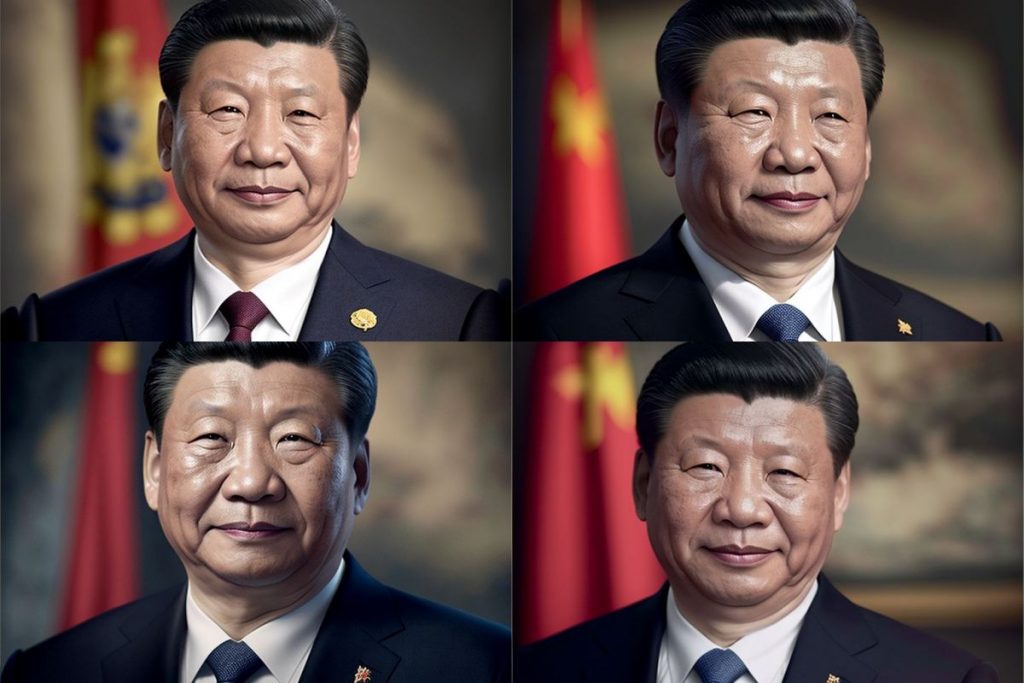China’s new content policy: Why media files created by AI must now be watermarked

In Brief
China bans “deep fakes” without watermarks
As the use of artificial intelligence (AI) rapidly expands globally, so too do the ethical concerns around its implementation. One such worry is the potential for AI-generated images – or “deepfakes” – to be used for malicious purposes, such as creating fake news stories or impersonating someone without their knowledge. In response to these concerns, the Chinese government has issued a new guideline banning the creation of AI-generated images without watermarks or other obvious labels.

The Chinese Cyberspace Administration released the guideline, stating that “unethical people use AI to produce, copy, publish, and disseminate illegal and harmful information, to slander and belittle the reputation and honor of others, as well as to fake other people’s identities.” The guideline goes on to say that such activities “maximize the negative social impact of deepfake technology” and that “manufacturers and users of deepfake technology should shoulder corresponding social responsibilities.”
This is not the first time that the Chinese government has taken measures to regulate AI-generated content. In February 2019, the Cyberspace Administration issued new regulations governing the development and use of “personal information assistants,” which included a ban on the use of deepfakes for “malicious” purposes. These regulations were largely seen as a response to the growing popularity of deepfake technology and the potential for it to be used for nefarious ends.
The new guidelines on AI-generated pictures are likely to have a significant impact on the way that deepfake technology is used in China. By banning the creation of AI-generated images without watermarks or other labels, the government is effectively censoring social networks.
The revised guidelines mandate that deepfakes additionally bear the following labels:
Services that generate or dramatically alter informative content and offer features like intelligent dialogue, a synthetic human voice, human face generation, and immersive realistic settings should be reviewed in a visible location to prevent public confusion or misidentification.
China also establishes accountability for watermark removal.

Additionally, deepfake technology providers must maintain legal records, while users must register accounts using their real names so that their generating activity can be monitored.
Read more news about AI:
Disclaimer
In line with the Trust Project guidelines, please note that the information provided on this page is not intended to be and should not be interpreted as legal, tax, investment, financial, or any other form of advice. It is important to only invest what you can afford to lose and to seek independent financial advice if you have any doubts. For further information, we suggest referring to the terms and conditions as well as the help and support pages provided by the issuer or advertiser. MetaversePost is committed to accurate, unbiased reporting, but market conditions are subject to change without notice.
About The Author
Damir is the team leader, product manager, and editor at Metaverse Post, covering topics such as AI/ML, AGI, LLMs, Metaverse, and Web3-related fields. His articles attract a massive audience of over a million users every month. He appears to be an expert with 10 years of experience in SEO and digital marketing. Damir has been mentioned in Mashable, Wired, Cointelegraph, The New Yorker, Inside.com, Entrepreneur, BeInCrypto, and other publications. He travels between the UAE, Turkey, Russia, and the CIS as a digital nomad. Damir earned a bachelor's degree in physics, which he believes has given him the critical thinking skills needed to be successful in the ever-changing landscape of the internet.
More articles

Damir is the team leader, product manager, and editor at Metaverse Post, covering topics such as AI/ML, AGI, LLMs, Metaverse, and Web3-related fields. His articles attract a massive audience of over a million users every month. He appears to be an expert with 10 years of experience in SEO and digital marketing. Damir has been mentioned in Mashable, Wired, Cointelegraph, The New Yorker, Inside.com, Entrepreneur, BeInCrypto, and other publications. He travels between the UAE, Turkey, Russia, and the CIS as a digital nomad. Damir earned a bachelor's degree in physics, which he believes has given him the critical thinking skills needed to be successful in the ever-changing landscape of the internet.



















































